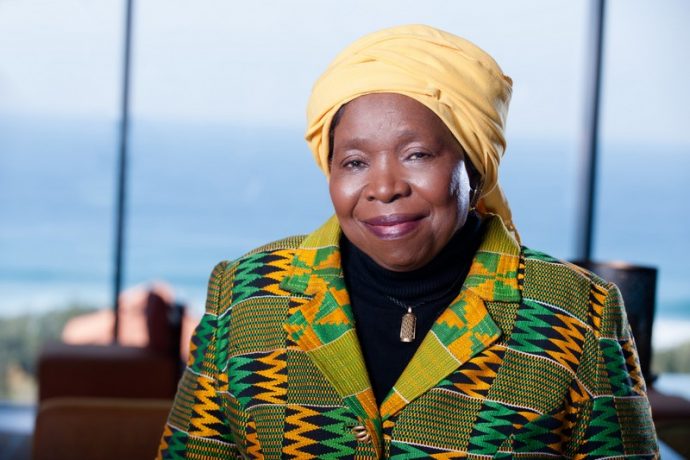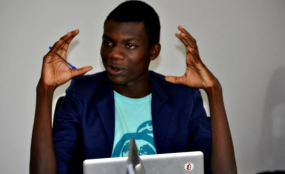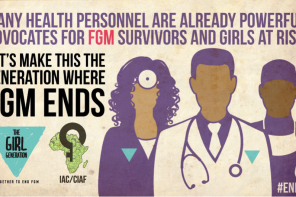The education of the girl child and women in leadership are mutually inclusive.
January 2006, Ellen Johnson Sirleaf was sworn into office as the 24th President of Liberia. This news took the entire world aback and left many with gaping mouths by the fact that, Patriarchal Africa had just welcomed its first ever female president. Ellen Johnson Sirleaf defied the odds. Six years later (2012) Joyce Hilda Banda, Malawi’s first female vice-president, took office as the country’s 4th President following the sudden death of President Bingu wa Mutharika. Joyce Hilda Banda defied the odds, again.
If anyone out there thought the snowball effect was just a myth, feel free to reconsider that thought. The African woman was out for the kill. In the ensuing months (July,2012) Nkosazana Clarice Dlamini-Zuma was elected chairperson of the African Union Commission, making her the first woman to lead the organisation. Dlamini-Zuma defied the odds again and again. Heads turned once more when Bibi Ameenah Firdaus Gurib-Fakim became the first elected female President of Mauritius in 2015. Gurib-Fakim defied the odds again, again and again. The narratives abound by the day as gender gaps sluggishly shrink.
Also read the story of Funmi Fagbemi: the Fashion entrepreneur from Nigeria
This phenomenal sequence of “first-ever” occurrences in the history of modern day African women, does not only highlight the rise of African women to prominent leadership positions, it equally draws attention to the slow progress of gender equality in the region. Since the mid-2000s, several West African countries as well as regional organisations like UEMOA, CILSS and the African Union have all adopted gender policies aiming at including gender issues in different policy sectors. But, these efforts have gone no further than the pages of the lawbooks in most of these countries.
The respect of the fundamental rights of women and young girls remain a serious concern. The education of the girl child for instance, faces one of the greatest challenges so far. The OECD Sahel and West Africa Club report in 2016 cited that seven West African countries were ranked among the top 20 countries in the world with the highest rates of child marriage. In Niger for instance, three out of four girls marry before the age of 18. Nigeria records the highest absolute number of child marriages, with approximately 1.2 million married young girls. According to Minh Cong Nguyen and Quentin Wodon of the World Bank, early marriage does not only constitute a violation of the rights of the girl, it also profoundly affects her life through substantially lower education prospects as well as social exclusion.
Also read imporivng Africa’s service economy
Education is fundamental to development and growth at both individual and national level. All successful and influential African women today share one thing in common which is, a solid educational background. Education is a life defining experience every child is entitled to. However, according to OECD Sahel and West Africa Club the net school attendance rate for girls in Africa from 2011-2014 was rated round about 50% for the poorest performing countries like Chad, Mali and Niger. These countries also have the lowest literacy rates for girls (15% in Niger and 34% in Mali—far below sub-Saharan Africa’s 2015 average of 69%). How then can these young girls who are Africa’s women of tomorrow, gain the knowledge and skills required to speak for themselves and fight for their rights, when most of them can neither read nor write? How then can these young girls defy the odds and rise to leadership positions in tomorrow’s Africa? “By depriving its young girls of the chance to develop their potential, Africa is collectively losing a huge amount of human capital. How can a country voluntarily deprive itself of the human potential of half of its population? The economic cost is enormous.”- OECD Sahel and West Africa Club.
Looking at how matters of equal rights and opportunities for women and the girl child are being handled, one might be tempted to assume that, the cry for gender equality and women empowerment in Africa, seems to be mistaken for a tantrum of a spoiled brat. This might be a possible explanation as to why it hasn’t attracted significant attention from policy makers and administrators, who are responsible for making sure these policies are implemented. Technically speaking, gender is not just a matter of achieving equal opportunities for women and men, gender equality is strategic economic development and management. “Women’s political empowerment and equal access to leadership positions at all levels (not forgetting that it all starts with the holistic education of the girl child) are fundamental to achieving the Sustainable Development Goals (SDGs). With limited growth in women’s representation and advancement of gender equality, the success of the SDGs are jeopardized” – UN Women, 2017.
Nonetheless, it would be unfair to ignore the efforts made by some African nations in this direction. Over the years countries like Rwanda have come to understand the strategic importance of the girl child education and women empowerment especially in the field of politics. This is one of the reasons why Rwanda sets itself apart from most African states as one of the fastest growing democracies on the continent. The impressive political and social development in the country was accurately represented by the global Women in Politics Survey in 2017, which ranked countries according to the percentage of women in ministerial positions, reflecting appointments up to January 1, 2017. Rwanda was ranked 7th out of 190, with 9 women occupying the 19 ministerial positions in government.
However, education alone does not guarantee the woman’s rise to leadership. The weak implementation of gender-focused policies which is often associated to insufficient funding, is also tied to strong individual and institutional resistance to gender initiatives, deeply rooted in cultural issues and traditions in most African societies. Moreover, men need to get more involved in sensitization projects.
Can the African woman defy the odds? Yes, she can. However, the daunting and exciting journey of doing so, starts with the girl child: Education, Empowerment and Leadership.





